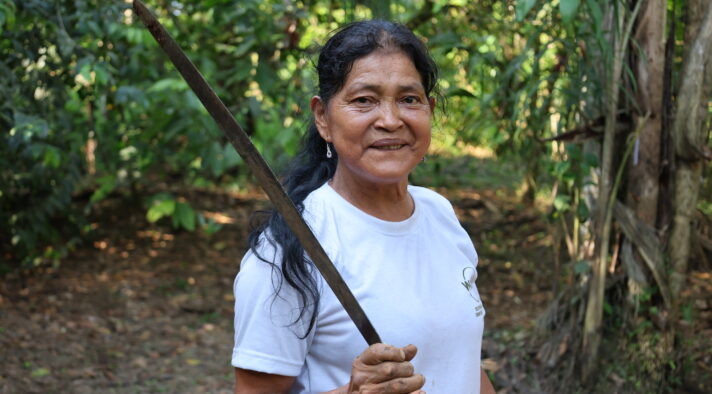This article draws from a Brief for Action prepared by RegionsAdapt, an initiative coordinated by Regions4, for its member regions—and as a contribution to the SME Climate Hub campaign. It highlights how subnational governments around the world are working with the private sector, particularly small and medium-sized enterprises (SMEs), to finance, implement, and scale adaptation solutions.
The Expanding Role of the Private Sector—and Why Regions Matter
As climate impacts accelerates, subnational governments play an increasingly critical role in building resilience. Yet they cannot do it alone. From water infrastructure to sustainable agriculture and urban development, regional governments are engaging SMEs and private actors to co-develop and finance adaptation strategies and projects that offer both environmental and financial returns.
Nearly one-third of global adaptation finance needs fall within investable sectors, according to the UNEP Adaptation Gap Report. However, adaptation projects with mostly societal returns—such as health, education, or public infrastructure – often struggle to attract private capital due to limited profitability and perceived risks.
Subnational governments are uniquely positioned to close this gap by creating enabling conditions for private participation. This includes establishing supportive legal frameworks, providing financial incentives, developing certification programs to encourage businesses to act for biodiversity and climate, and promoting partnerships with companies, particularly small and medium-sized enterprises (SMEs). Early collaboration with investors, strong political signals, and the deployment of innovative financial instruments are essential to mobilize private capital for adaptation projects.
Insights from CDP’s 2023–2024 reporting cycle show that this shift is underway: nearly 1 in 5 adaptation actions self-reported by RegionsAdapt members involve private sector collaboration, demonstrating that climate resilience is increasingly seen as a shared responsibility and opportunity.
Examples from Regions: Public and Private Collaboration in Action
Partnering for Nature
Across the RegionsAdapt initiative, public–private partnerships are being leveraged to restore ecosystems and enhance resilience through nature-based solutions:
- In Goiás, Brazil, the Juntos Pelo Araguaia project is restoring 10,000 hectares of degraded land through a combination of reforestation, spring protection, and soil recovery in partnership with private actors.
- In Brazil’s Mata Atlântica, the Conexão Mata Atlântica initiative pays farmers to restore native forests across three states through a payment for ecosystem services (PES) model.
- In Catalonia, Spain, Life Climark enables forest owners to generate and sell climate credits to businesses, linking corporate responsibility to sustainable land management.
- In Minas Gerais, Brazil, the AGRO + VERDE project supports landowners with training and materials to restore degraded land. A partnership with the mining industry federation (FIEMG) has also mapped over 500,000 hectares of preserved land with high carbon storage potential.
These examples show that when governments design mechanisms to value and reward ecosystem services, private sector actors can become stewards of climate and biodiversity solutions.
Enabling business innovation
Subnational governments are also playing an instrumental role in enabling innovation by SMEs and local industries:
- In Lombardy, Italy, grants are supporting SMEs in adopting circular economy practices and hiring energy managers.
- The Basque Ecodesign Center in Spain brings together public and private stakeholders to develop a shared digital platform for monitoring environmental performance.
- In South Australia, regenerative agriculture and climate-resilient aquaculture are being scaled through partnerships between government, farmers, Aboriginal groups, and industry—including methane-reducing seaweed cultivation.
By fostering innovation in sustainable technologies and business models, these efforts demonstrate how targeted support can help businesses become leaders in climate adaptation.
Building the foundations: enabling environments and policy tools
A number of regions are establishing strong policy frameworks to support business engagement in adaptation:
- In Jalisco, Mexico, the Business Alliance for Climate collaborates with the tequila industry on sustainable agave production, backed by certification protocols that aim to halt deforestation and protect biodiversity.
- Scotland’s Adaptation Scotland Programme provides SMEs with tailored resilience tools and support—especially in exposed sectors such as whisky, horticulture, and wholesale.
- In Paraná, Brazil, the Selo Clima certification scheme, granted by the State Secretariat for Sustainable Development, recognizes city halls, secretariats, departments, and municipal agencies that implement sustainable policies based on environmental, social, and governance (ESG) criteria. It promotes sustainable land use by businesses and offers recognition based on climate performance. Launched in 2015, the certification has already been awarded to 495 organizations. In 2025, membership in the Selo Clima certification grew by 70%, with 260 private companies, 20 public institutions, and 33 municipalities participating. By highlighting municipal efforts, the program emphasizes the importance of local governments in driving sustainable development across the state.
- In the Basque Country, Spain, the Basque Clean Technology List is a pioneering fiscal tool offering a 35% corporate tax deduction on eligible low-emission, high-efficiency technologies—creating strong investment signals for green innovation.
These examples underscore the importance of stable governance, clear standards, and enabling policy for crowding in private action.
Scaling access to climate finance for SMEs
Access to finance remains a core challenge for smaller enterprises seeking to engage in adaptation. Regions are developing creative solutions to bridge this gap:
- In Scotland, the Facility for Investment Ready Nature in Scotland (FIRNS) helps nature-based project developers prepare investable proposals.
- In Catalonia, Spain, a €100 million loan from the European Investment Bank to the Catalan Finance Institute is supporting SMEs to invest in energy efficiency, renewables, and low-carbon innovation, building on the region’s earlier Action Green programme of R&D grants and subsidised loans.
- In Lombardy, a 2024 pilot with Finlombarda S.p.A. assessed the sustainability and financing needs of SMEs using ESG criteria, resulting in 26 tailored actions and an ongoing dialogue with business associations.
- In Québec, Canada, the Origo programme helped mobilize over CAD 5 million in private investment for cleantech startups by de-risking early-stage technologies.
- In Cross River State, Nigeria, a ₦1 billion matching fund was launched in partnership with the Nigerian Small and Medium Enterprises Development Agency (SMEDAN) to support MSMEs—particularly women and youth-led businesses in climate-vulnerable sectors—with training, business development, and affordable financing.
These models highlight how public finance and capacity-building can unlock scalable, inclusive adaptation solutions through the private sector.
Regions4’s Call to Action: Scaling Private Sector Engagement in Adaptation
To scale private sector engagement in adaptation, Regions4 encourages subnational governments and partners to:
- Strengthen regulations and standards to direct private capital away from harmful practices and toward sustainable adaptation.
- Align investment plans with adaptation priorities, integrating climate goals into broader development and financial strategies.
- Structure bankable projects using financial engineering tools to attract long-term, responsible investment.
- Build internal capacity to identify, prepare, and implement complex adaptation initiatives.
- Implement financial taxonomies that define and recognize climate investments clearly and transparently.
- Engage with national and global partners to secure regulatory reforms, blended finance options, and technical support.
The path to climate resilience is not one government can walk alone. Private sector engagement is not just helpful—it is essential. Through coordinated action, inclusive governance, and targeted investment, subnational governments can turn adaptation from a policy ambition into a shared reality.
At Regions4, we remain committed to supporting our members in building these bridges and advancing resilient, nature-positive, and inclusive futures for all.
About RegionsAdapt
RegionsAdapt is a global initiative coordinated by Regions4, driving 80+ regional governments to accelerate climate adaptation. By facilitating peer learning and international visibility, the initiative strengthens regional voices—particularly those working with Indigenous peoples, local communities, and other frontline actors. States, Provinces and Regions interested in joining RegionsAdapt and contributing to the Race to Resilience can connect here.
RegionAdapt is also a partner of two of the Climate High-Level Champions’ campaigns:
- Race to Resilience: The Race to Resilience is a global campaign working to improve the resilience of four billion people to climate risk by 2030. It does this through a network of partners supporting locally led work in areas such as health, food, water and livelihoods. Learn more about the Race to Resilience.
- Climate-Proofing SME: The Climate-proofing SMEs campaign calls on major corporate and financial actors to enhance support for SMEs to ensure that they not only survive but thrive in the race to a healthier, more prosperous and resilient world. Learn more about the Climate-Proofing SME campaign.
Explore our Brief for Action
This article draws from RegionsAdapt latest Brief for Action serie aiming to inform RegionsAdapt members and partnrs on key results and recommendations based on RegionsAdapt research and discussion with subnational governments. This brief, released in August 2025, highlights how subnational governments around the world are working with the private sector, particularly small and medium-sized enterprises (SMEs), to finance, implement, and scale adaptation solutions.
- Read the Brief in Action in English, French and Spanish here.



